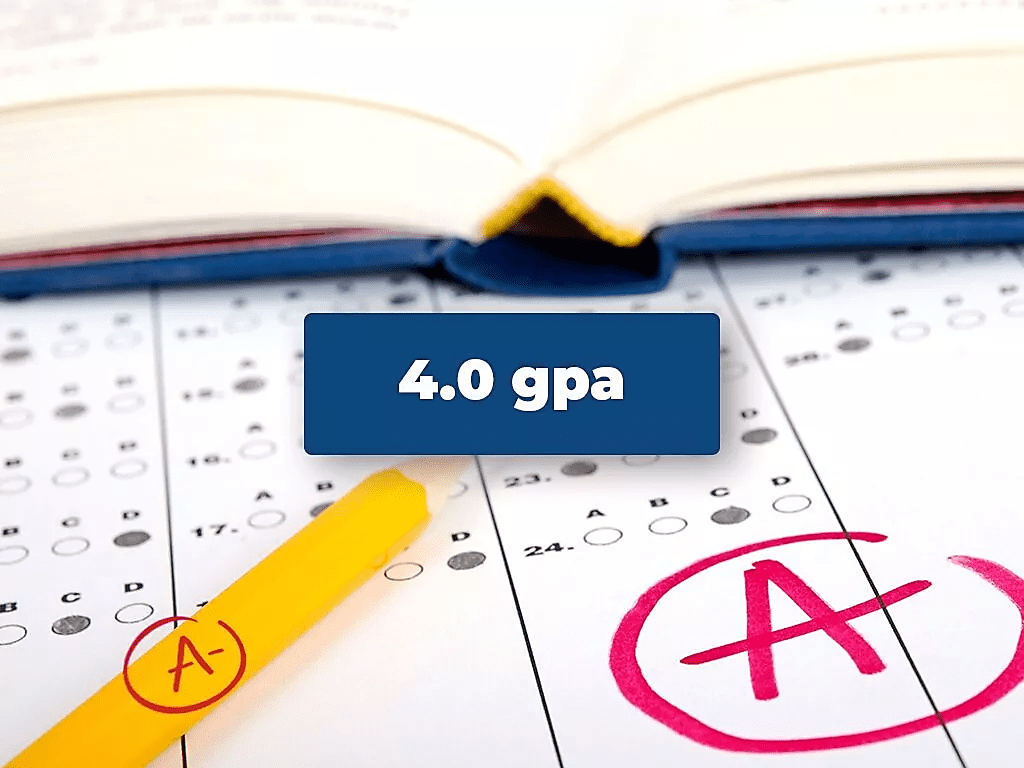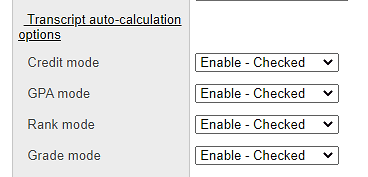The Grade Point Average (GPA), particularly in North America, is a method of rating a student’s academic performance. Although the GPA system is popular in the US, it is also used in other nations, although there are differences in the curricula, grading schemes, and grade points associated with the system in those other nations. While applicants studying in the US only need to obtain their transcripts before applying for higher education, applicants from other countries must convert their grades into the GPA, which is the US’s accepted grading scale.

What is GPA?
The GPA can be referred to as an average score based on the candidate’s performance in each semester, emphasizing the weighted average grade the student receives in each subject. In terms of the coursework required prior to research, this system is used in secondary schools, undergraduate, graduate, and occasionally even doctoral programs. This grade point average is considered when granting applicants admission to more advanced programs when determining their academic honors, and employers who want to hire them because it paints a clear picture of the applicant’s skill and subject-matter knowledge.

The courses the candidate enrolls in at the university, and the number of credits each course is worth are factors in determining the GPA. The courses typically range from 2-4 credits, with courses with a credit score of 4 being considered majors and referring to courses with 4 hours and 3 or more assignments each week. The candidate’s total attendance hours are multiplied by their grade equivalent to producing a grade point, then divided by the candidate’s total credits taken for the semester to produce their GPA.
The candidate will typically need a certain number of credits per semester in degree courses to graduate in the field. The grade point average, which can be used to gauge a candidate’s proficiency in a subject, takes into account both the number of hours taken in the subject and their grade equivalents.
Why is GPA important?
The GPA is a grading scale used to assess a candidate’s performance over the course of their degree. Institutions can use this system to determine a candidate’s standing based on their performance in their courses. While the grade points they receive in each subject or course matter if they plan to continue their education, their GPA provides a more comprehensive picture of their performance over the course of their degree.

Admissions officers frequently perform the initial screening of applications based on the applicants’ GPAs as well as their TOEFL/IELTS and GRE scores. A candidate who has a high GPA has likely been able to maintain their performance over the course of their education. As a result, the GPA offers a more accurate evaluation of the candidate’s performance than a degree certificate that indicates whether the candidate passed or failed.
Candidates must submit their GPAs when applying for jobs, scholarships, and other opportunities during their academic and professional careers. It is typically a condition of eligibility for joining various clubs and organizations at the college and even for scholarship applications. Candidates submitting applications for master’s and doctoral programs must also have a high GPA.
How is GPA calculated?
In the US, grades are assigned on a scale from 0 to 4, with 4 denoting an A and 0 denoting an F. In order to calculate a candidate’s grade point in the US, the candidate’s total number of credits or hours of the course is multiplied by the grade equivalent (4 if the candidate received an A). The GPA is calculated by dividing this grade point by the total number of units the candidate has taken this semester. The following table lists the grade equivalents of each possible course grade a candidate could receive, along with the corresponding percentage equivalent.
| Grade Points | Grade range | Equivalent |
| F | <60% | |
| 1 | D | 60-69% |
| 2 | C | 70-79% |
| 3 | B | 80-89% |
| 4 | A | 90-100% |
The grades listed above are the most transformed data of the grading scheme, but there are grades and equivalents that fall in between them. These grades are
| Grade | Grade Point |
| F | |
| D- | 0.67 |
| D | 1.00 |
| D+ | 1.33 |
| C- | 1.67 |
| C | 2.00 |
| C+ | 2.33 |
| B- | 2.67 |
| B | 3.00 |
| B+ | 3.33 |
| A- | 3.67 |
| A | 4.00 |
GPA system worldwide
There are various grading schemes used in different nations to recognize academic excellence. The most frequently used systems are those for calculating percentages, GPAs, and even CGPAs. Candidates may be given both letter and numeric grades ranging from A to F or 1 to 6, respectively. International standards have been established for comparing the grading systems from different parts of the world, despite the evaluation methods differ from country to country and even institution to institution.
The formula for calculating a GPA is the same in most institutions, but the scale can vary from 0–4 in the US to 0–10 in other nations or even 0–5. In these situations, applicants must change their GPA from the scale they are currently using to the scale used in the nation they are applying to.
READ MORE: Study in the USA Without IELTS For International Students 2022
How to convert GPA to the US Scale
Some universities may request a detailed method of evaluating the scores using their scales due to the inherent differences in the systems of evaluation used by various institutions around the world. In these situations, it’s critical to speak with the registrar or the exam controller of the university where the candidate attended classes to arrange for an official evaluation to be submitted with the transcripts. It is advised that applicants send their rank certificate, official class average, top students’ grades, etc., to minimize the gap between their GPA and the previous system.
GPA Score in Universities
One of the crucial criteria for admission to a reputable college is GPA. Candidates can enter the top 50 colleges with a higher GPA and above-average GRE/SAT scores. A candidate’s admission to one of the top 20 colleges in the nation may be contingent on their class rank. The GPA serves as a clear indicator of one’s academic performance and demonstrates the candidate’s aptitude for academic success. This is also true because tests like the GRE and SAT/ACT do not evaluate a person’s academic abilities, despite the fact that it is frequently believed that applicants with high GRE or SAT scores will also have high GPAs. The courses a student has taken, their GPA, class rank, and SAT/ACT scores are all significant factors for undergraduate students.
For admission to a graduate program, the majority of universities have a minimum GPA requirement of at least 3/4. The minimum threshold for a Ph.D. is much higher than 3/4. For international students, the GPA calculation may be different. Moreover, there are other requirements for admission besides GPA. If the rest of their college application is strong, applicants with low GPAs can still get into reputable universities.
How to calculate GPA?
You divide the total grade point value for all of your credits by the total grade point value you have been given to determine your GPA. The examples below:
First Example:
| Course | Grade | Credit | Credit | Total Grade Point Value |
| Biology | B+ | 3 | x3.33 | =9.99 |
| Physics | C | 6 | x2.00 | =12.00 |
| Mathematics | A- | 3 | x3.67 | =11.01 |
| Total | 12 | 33 |
Divide the total grade point total (33.00) by the total credits (12).
33.00 ÷ 12 = 2.75
In the first example, the student’s GPA is 2.75, which indicates that overall, the student received a B or a B- grade (as per the value table).
Second Example:
| Course | Grade | Credit | Credit | Total Grade Point Value |
| Biology | F | 3 | x0.00 | |
| Physics | A- | 3 | x3.67 | 11.01 |
| Mathematics | C | 6 | x2.00 | 12 |
| Arts | B+ | 3 | x3.33 | 9.99 |
| Total | 15 | 33 |
Divide the total grade point total (33.00) by the total credits (15).
33.00 ÷ 15 = 2.20.
In the second example, the student’s GPA is 2.20, which indicates that overall, the student earned a grade that falls between a C+ and a C. (as per the value table).
Divide the total number of points obtained in a program by the total number of credits attempted to arrive at the basic formula for calculating GPA. The grade point average for that program is the result.

Where to find your GPA
Viewing their unofficial transcript will reveal the student’s Grade Point Average (GPA). You can access the unofficial transcript by going through the steps below in your myWalden portal.
1-Log into your portal.
2-Click on the ME tab.
3-On the ME tab menu, select the My Education section.
4-From the list of links available here, please click on View Unofficial Transcript.
5-Once this loads, scroll down to the section on degree and curriculum information.
6-Your GPA is located on the far right of this section (see below for an example).

Frequently Asked Questions: GPA (Update 2022)
1-Is a student’s GPA calculated after transferring to courses from another district?
Yes. Transfer courses (T-series course numbers-T05, T10, T20) are included in the GPA calculations.
2-What courses are counted toward the GPA?
All courses with the “Include in GPA” flag are included in GPA calculations for the Academic GPAs. All courses are included in the Athletic GPA calculations.
3- What grades are ignored in GPA calculations?
Grades with the final grade scale indicator “NoNumericEquiv” will not be considered when calculating GPA. The following grades currently have No Numeric Equivalent: P (P is included in the Athletic GPA), I, UN, and MFG.
If a student receives one of the ignored final grades, their record will not be taken into account when calculating their GPA, even if a course is marked with the “Include in GPA” checkbox.
4- Why can’t I change my GPA?
When the Grade Point Averages Report is run, and the option to Update GPA on Student Record is chosen, the student’s GPA is updated.
When there is a change to the student transcripts, a GPA will be updated if your Grade Preferences (School>Set up>Preferences>Grades category) setting is set to Auto-Calculate either Force or Enable-Checked (a grade change or new transcript record added).
The Student GPA fields won’t reflect the change. The Grade Point Summary for the academic year in which the change was made will reflect the change. When the option to Update the student table is chosen when running the Grade Point Averages Report again, the student GPAs will be updated.
Before transcript change
After transcript change
READ MORE: Study in USA without GRE for international students 2022
5- Are Credit Recovery and Summer School classes included in the GPA?
The course will be counted toward the GPA if it is marked with the “Include in GPA” flag.
6- What is Class Rank?
The class rank is determined by a formula that considers a student’s grade point average (GPA), a multiplier of credits earned, and bonus points given to particular coursework levels. Each student receives a class rank value as a result of the formula. These values are then compared to the student population in each grade, resulting in a rank order that indicates each student’s position within their graduating class. A student’s GPA is multiplied by the total number of credits earned to determine their class rank, and additional points are added for taking certain courses designated as electives.
7-Where does the “out of” number used to determine a student’s rank come from?
The system counts the number of active students in each Year of Graduation when the Grade Point Averages Report is run with the option set to recalculate (not grade level). The “Out of number” in the class rank is this number, which is stored.
8- Which students are included in the rank?
All students are included when running the Grade Point Averages Report, which will produce the student ranking
9- Do employers ask for GPA?
Employers might inquire about your GPA if they anticipate receiving applications from recent graduates with little work experience. For instance, if they are hiring for an entry-level position, they might require a GPA on the application to help them select applicants.
It will differ depending on the employer and the sector you intend to work in. Their questions about your educational background center on whether you have a degree in a relevant field once you have advanced in your career and gained professional experience.
10- What is considered a good GPA?
When a candidate has a high GPA, which many experts define as being 3.5 to 4.0, they frequently include it in their application. A GPA in that range can show potential employers that you are dedicated to your studies and have worked hard. The average GPA ranges from 3.0 to 3.4, but some employers advise including any GPA that is at least 3.0.
11- When should you include your GPA for employers?
If you are a current student or a recent graduate (within the last three years) of a college or high school and your GPA is higher than 3.5, you should include it. Employers occasionally specifically request applicants’ GPAs, so you must include it on your application regardless of their value. Employers might assume that you did not read the instructions carefully or that you did not want to display your GPA because it was low if you fail to include it after being asked to do so.
You can remove your GPA from your resume once you’ve had at least three to five years of professional work experience. By that time, you have established a track record of success in your industry, so employers are no longer dependent on your GPA to gauge your commitment to your work.
12- Can I get a job with a “low” GPA?
While some employers may request your GPA, most won’t use it as their only factor in hiring. Unless specifically requested, you don’t have to include it if it makes you uncomfortable. To highlight your strengths as a student, you can highlight other academic accomplishments you have received.
Your resume or application should also highlight your relevant experiences and abilities, proving that you are qualified to carry out the responsibilities of the position. Employers will be impressed by your abilities because they demonstrate that you can handle pertinent tasks and may not need extensive training to begin working.
Your GPA is probably not going to come up during the interview process. Examine the job description and ensure you bring examples showing you possess the skills the employer has listed.
If you anticipate being asked questions about your GPA, be prepared to explain how you overcame or handled any academic challenges. Employers will be grateful if you can describe how you take the initiative to better yourself, when necessary.
13- Can you lie about your GPA?
You must still be truthful when asked to include your GPA, even if you think it is lower than what the employer expects or requires. Hiring managers may use your transcript to confirm your GPA during the background check procedure. Your chances of landing the job could be harmed if it is found that you provided an incorrect number. Additionally, you make an effort to include any pertinent accolades or accomplishments from your academic career to support the education section.
14-How do I determine my high school’s weighted GPA?
Simply follow the steps below to calculate your weighted GPA:
Step 1: Convert every letter grade to its respective points (A=4, B=3, C=2, D=1, F=0.)
Step 2: Add up all the grade points
Step 3: Divide the added grade points (step 2) by the number of class credits taken.
Note: For Honors and AP classes, you should give yourself one additional point for every semester of an Honors or AP class that you have completed (A=5, B=4, C=3.)